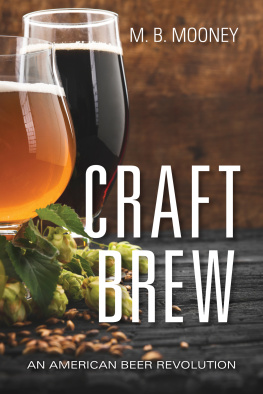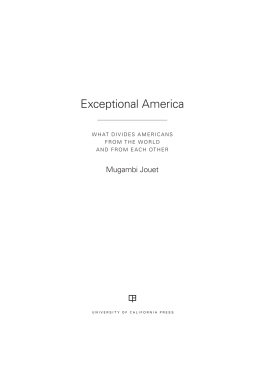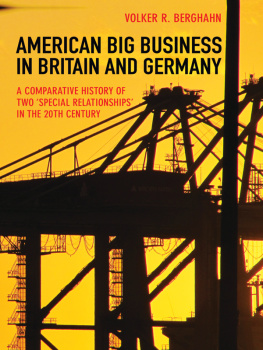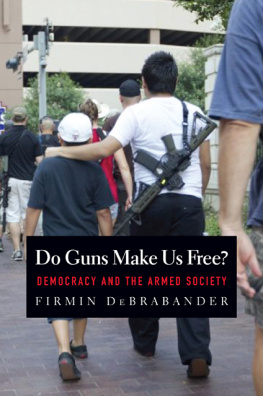Haag - The Gunning of America: Business and the Making of American Gun Culture
Here you can read online Haag - The Gunning of America: Business and the Making of American Gun Culture full text of the book (entire story) in english for free. Download pdf and epub, get meaning, cover and reviews about this ebook. year: 2016, publisher: Basic Books, genre: History. Description of the work, (preface) as well as reviews are available. Best literature library LitArk.com created for fans of good reading and offers a wide selection of genres:
Romance novel
Science fiction
Adventure
Detective
Science
History
Home and family
Prose
Art
Politics
Computer
Non-fiction
Religion
Business
Children
Humor
Choose a favorite category and find really read worthwhile books. Enjoy immersion in the world of imagination, feel the emotions of the characters or learn something new for yourself, make an fascinating discovery.
The Gunning of America: Business and the Making of American Gun Culture: summary, description and annotation
We offer to read an annotation, description, summary or preface (depends on what the author of the book "The Gunning of America: Business and the Making of American Gun Culture" wrote himself). If you haven't found the necessary information about the book — write in the comments, we will try to find it.
Haag: author's other books
Who wrote The Gunning of America: Business and the Making of American Gun Culture? Find out the surname, the name of the author of the book and a list of all author's works by series.
The Gunning of America: Business and the Making of American Gun Culture — read online for free the complete book (whole text) full work
Below is the text of the book, divided by pages. System saving the place of the last page read, allows you to conveniently read the book "The Gunning of America: Business and the Making of American Gun Culture" online for free, without having to search again every time where you left off. Put a bookmark, and you can go to the page where you finished reading at any time.
Font size:
Interval:
Bookmark:
More Advance Praise for
The Gunning of America
Firearms may be instruments of death. But they are also, as Pamela Haag reveals in her thought-provoking reassessment of guns in American life, economic commoditiesso much so, that it can be difficult at times to discern where business culture ends and gun culture begins.
Karl Jacoby, author of Shadows at Dawn: A Borderlands Massacre and the Violence of History
The Gunning of America provides an exceptional, fresh perspective about the gun culture in America. Pamela Haag thoroughly examines the history of Americas long-term relationship with guns while offering an insightful, informative philosophy as to when and how this love affair began.
Wes Moore, founder and CEO of BridgeEdU


Copyright 2016 by Pamela Haag.
Published by Basic Books,
A Member of the Perseus Books Group
All rights reserved. Printed in the United States of America. No part of this book may be reproduced in any manner whatsoever without written permission except in the case of brief quotations embodied in critical articles and reviews. For information, contact Basic Books, 250 West 57th Street, New York, NY 10107.
Books published by Basic Books are available at special discounts for bulk purchases in the United States by corporations, institutions, and other organizations. For more information, please contact the Special Markets Department at the Perseus Books Group, 2300 Chestnut Street, Suite 200, Philadelphia, PA 19103, or call (800) 810-4145, ext. 5000, or e-mail .
Designed by Trish Wilkinson
Set in 11.5-point Goudy Oldstyle Std
Library of Congress Cataloging-in-Publication Data
Names: Haag, Pamela.
Title: The gunning of America: business and the making of American gun culture / Pamela Haag.
Description: New York: Basic Books, a member of the Perseus Books Group, 2016. | Includes bibliographical references and index.
Identifiers: LCCN 2015036679 | ISBN 9780465098569 (electronic)
Subjects: LCSH: FirearmsSocial aspectsUnited StatesHistory. | Firearms industry and tradeUnited StatesHistory. | CapitalismUnited StatesHistory. | United StatesSocial conditions. | United StatesEconomic conditions. | BISAC: HISTORY / United States / 19th Century. | HISTORY / United States / General. | HISTORY / Military / Weapons. | BIOGRAPHY & AUTOBIOGRAPHY / Women.
Classification: LCC TS533.2 .H33 2016 | DDC 338.4/768340973dc23
LC record available at http://lccn.loc.gov/2015036679
10 9 8 7 6 5 4 3 2 1
In memory of my brother, Stephen L. Haag
Contents
T HIS BOOK TELLS THE STORY OF HOW AMERICA BECAME A GUN culture through the prism of the forgotten, unglamorous, but revelatory archive of the gun industryprincipally, the records of the Winchester Repeating Arms Company of New Haven, Connecticut.
I didnt set out to tell this story. I was drawn into the subject by a ghost story that I heard while living in New Haven. Every day, I walked past the crumbling remains of the factories built by the rifle king, Oliver Winchester. It wasnt Olivers story that intrigued me; it was that of his less visible, more historically numinous daughter-in-law, Sarah Winchester. According to legend, when she inherited the Winchester rifle companys blood fortune in the 1800s, she took on an enormous, haunting debt of guilt, obsession, and grief along with it. Maybe this is true, and maybe it is not: a legend does not reveal its truth without a fight. What we do know is that Sarah ended up doing something enigmatic and mysterious with much of her fortuneand to this day, what she did is a compelling riddle that craves an answer.
I wanted to believe the legend of Sarah Winchester, because it spoke to something in me and planted a question in my mind. It wasnt until many years later, however, after the tragedy of the Sandy Hook Elementary School shooting in Newton, Connecticut, on December 14, 2012, that I realized what that question was. I still wanted to know if Sarah really had felt a haunting burden of conscience for acquiring a gun fortune. But, even more so, I wanted to know why Oliver Winchester had not felt it. Admittedly, it is an anachronistic question, because it never would have been asked in his day. Oliver Winchester enjoyed an unimpeachable reputation as a minor captain of industry. Nevertheless, I wanted to know what allowed Oliver Winchester and his successors not to feel at least a small bit encumbered by the fact that they manufactured and sold millions of fearfully destructive guns. We hear a great deal about gun owners, but what do we know about their makers? The gun debate has been mired in rights talk for so longwhat gun owners have a right to do and what gun-control advocates have a right to force them to dothat it is forgotten as a matter of conscience.
I took on this question with some trepidation. Delving deeply into Oliver Winchesters world and the neglected historical archives of the American gun industry would land me in the middle of a heated debate, one that has been ensnared for decades in what one expert has described as an extraordinary degree of polemical undergrowth. I did not want to become entrapped by that snare. I had never owned or shot a gun when I started this project; nor had I been involved in gun-control politics or advocacy. I came to this material as a historian.
As a historian, I wanted to take myself back to a time when guns didnt have the freight of being malignant commodities, when they were not the muses of a disturbingly violent culture. I wanted to be able to see a gun the same way that a mens shirt manufacturer from Connecticut had when he had first encountered a volitional rifle in a scrappy shop on Artizan Street in New Haven in 1855. Oliver Winchester saw something in that rifle that led him to invest in it, to see if it could be mass-produced and sold. So despite my deep concerns about becoming irretrievably ensnared, I ventured into the minutiae of the industry that made the guns that made the gun culture. Once there, I was surprised by what I discovered.
The story also involves another name that later became famous: if Pugsley sounds at all familiar, it is because the cartoonist Charles Addams, sometime in the early twentieth century, befriended the real Edwin Pugsley, who became the inspiration for The Addams Family character of the same name (the macabre son). But the real Pugsley had another claim to fame. He knew more about Winchester rifles and business than almost anyone else. He had married into the Winchester family, and he was variously the companys gun savant, factory superintendent, director of research, vice president, and informal but meticulous chronicler. In 1934, speaking to a prospective author of a company history, he advocated telling the story of the Winchester in the simplest, most elegant, obvious terms. His assessment has great merit: We must go back to various types of records, he said. In the first place... financial statements. As it makes money, it expands. If it loses money, it does not expand.... Such a tabulation will give a very graphic story. In that terse description, Pugsley distilled the ironclad equation and cold arithmetic that governed Oliver Winchesters world and the cultural history of American guns that followed.

BY EXAMINING GUNS AS A BUSINESS, AND FOLLOWING THE MONEY, I found that some theses, counterintuitive though they may be, emerged clearly. An abridged history of the American gun culture, told from legend and popular memory, might go like this: We were born a gun culture. Americans have an exceptional, unique, and timeless relationship to guns, starting with the militias of the Revolutionary War, and it developed on its own from there. Some celebrate and some condemn this relationship, but it is in either case unique. Guns have long been a commonplace part of American life, which is why guns pretty much sell themselves. The Second Amendment, ubiquitous to contemporary gun politics, was a prominent presence historically and is a source of the guns unique stature, while the idea of gun control is more recent. The American gun story is about civilians and individual citizens, and they are its heroes or its villainsthe frontiersman, the Daniel Boone long hunter who trekked far into the wilderness alone, the citizen-patriot militiaman, the guiltily valorized outlaw, and the gunslinger. The guns mystique was forged most vividly on the violent western frontier of the 1800s, and this mystique is about individualism: guns protect citizens against overzealous government infringement of liberties; they protect freedom and self-determination.
Next pageFont size:
Interval:
Bookmark:
Similar books «The Gunning of America: Business and the Making of American Gun Culture»
Look at similar books to The Gunning of America: Business and the Making of American Gun Culture. We have selected literature similar in name and meaning in the hope of providing readers with more options to find new, interesting, not yet read works.
Discussion, reviews of the book The Gunning of America: Business and the Making of American Gun Culture and just readers' own opinions. Leave your comments, write what you think about the work, its meaning or the main characters. Specify what exactly you liked and what you didn't like, and why you think so.






